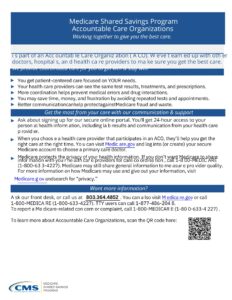The Importance of Care Coordination in Family Medicine
In today’s fast-paced and ever-changing healthcare landscape, the term “care coordination” has become more than just a buzzword. It is a fundamental aspect of patient care that ensures seamless integration of healthcare services. At Lovelace Family Medicine, we believe that effective care coordination is the key to providing holistic and patient-centered care.
What is Care Coordination?
Care coordination involves organizing patient care activities and sharing information among all participants concerned with a patient’s care to achieve safer and more effective care. This means that your primary care physician, specialists, and other healthcare providers work collaboratively to provide a cohesive treatment plan. The goal is to meet patients’ needs and preferences in the delivery of high-quality, high-value health care.
Why is Care Coordination Important?
Enhanced Patient Safety
One of the primary benefits of care coordination is enhanced patient safety. By ensuring that all healthcare providers involved in a patient’s care are on the same page, we can minimize the risk of errors, such as medication discrepancies and redundant tests. This collaborative approach ensures that every aspect of the patient’s health is considered, reducing the likelihood of mistakes that can occur when care is fragmented.
Improved Patient Outcomes
Effective care coordination leads to improved patient outcomes. When healthcare providers communicate and collaborate effectively, they can create comprehensive care plans that address all of a patient’s health needs. This holistic approach results in better management of chronic conditions, quicker recovery times, and overall better health outcomes for patients.
Enhanced Patient Experience
At Lovelace Family Medicine, we understand that healthcare is not just about treating illnesses but also about providing a positive patient experience. Care coordination ensures that patients receive timely and appropriate care, without the stress and confusion of navigating the healthcare system alone. Patients are more likely to feel supported and satisfied with their care when they know their healthcare providers are working together for their benefit.
Cost-Effective Care
The hospitalist model of inpatient care is often considered cost-effective. However, this approach can sometimes come at the expense of personalized patient care. By contrast, care coordination in family medicine focuses on providing cost-effective care without compromising the quality and continuity of care. By avoiding unnecessary tests and procedures, and by managing chronic conditions effectively, we can reduce healthcare costs for our patients.
The Lovelace Family Medicine Approach to Care Coordination
At Lovelace Family Medicine, we believe that good medicine requires more than just technical skills and medical knowledge. It requires building and maintaining strong, trusting relationships between patients and physicians. Trust and continuity of care are the backbones of our practice, and care coordination is a critical component in achieving this.
Building Trust Through Continuity of Care
Our approach to care coordination starts with establishing a continuous and trusting relationship with our patients. We take the time to get to know our patients, understand their health histories, and listen to their concerns. This relationship-building is essential for effective care coordination, as it ensures that we are fully aware of each patient’s unique health needs and preferences.
Holistic Health Management
We are committed to providing holistic health management for our patients. This means that we consider all aspects of a patient’s health, including physical, mental, and emotional well-being. Our care coordination efforts are focused on creating comprehensive care plans that address all these aspects, ensuring that our patients receive well-rounded and effective care.
Collaboration and Communication
Effective care coordination requires collaboration and communication among all members of the healthcare team. At Lovelace Family Medicine, we foster a collaborative environment where our physicians, specialists, and other healthcare providers work together seamlessly. We use advanced health information technology to share patient information and coordinate care efforts, ensuring that everyone involved in a patient’s care is on the same page.
Your Doctors for Life
More than just a tag line. Throughout the ever-changing landscape of healthcare, we have always been, and will always be, committed to being your doctors for life. Our dedication to care coordination means that we remain involved in our patients’ health journeys, even when they require hospital care. We believe that continuity of care should not be disrupted by hospital stays. Our patients are treated by members of the Lovelace Family Medicine team and are not assigned to a hospitalist.
Care coordination is a critical aspect of providing high-quality, patient-centered care. At Lovelace Family Medicine, we are dedicated to ensuring that our patients receive seamless and comprehensive care through effective care coordination. By fostering strong relationships, promoting collaboration, and focusing on holistic health management, we ensure that our patients receive the best possible care throughout their lives. Trust us to be your doctors for life, committed to your health and well-being every step of the way.
Stay Informed
 For more information on how care coordination can benefit you, download the Accountable Care Organization CMS Medicare Shared Savings Flyer.
For more information on how care coordination can benefit you, download the Accountable Care Organization CMS Medicare Shared Savings Flyer.
